Stephen Russell, group managing director, has been with the company for 30 years and worked through most departments of the business. He took the top job 11 years ago, just before the recession hit the UK.
Russell had been mentored by Bill Bishop, the previous managing director. When Bishop announced he was retiring, Ford, the franchise that has been with Ringways since 1967, needed to know there would be someone that would bring continuity to the business.
Russell said: “Ford needed to see a senior person that would be with the business for many years and on the basis of that, they would support Ringways as a group moving forward.
Ringways Motor Group is not afraid of tough decisions, whether it comes to changing its remuneration model to reflect newer working practices or closing businesses in the face of a recession.
Stephen Russell, group managing director, has been with the company for 30 years and worked through most departments of the business. He took the top job 11 years ago, just before the recession hit the UK.
Russell had been mentored by Bill Bishop, the previous managing director. When Bishop announced he was retiring, Ford, the franchise that has been with Ringways since 1967, needed to know there would be someone that would bring continuity to the business.
Russell said: “Ford needed to see a senior person that would be with the business for many years and on the basis of that, they would support Ringways as a group moving forward.
“Bill supported me through difficult times during the financial crisis and it put me in a really strong position when he retired to take over.
“I had been doing the job for two years prior to that, but my grounding of a full understanding of the business allowed me to build a really good team.”
It was a daunting prospect for a new leader, but he took decisive action by closing two businesses to relieve the pressure on cashflow the company was facing.
Russell said: “The group had become big, but with hardly any return.
“We had to change the model in 2008. The banks were putting us all under pressure. We had to ask ourselves if we had the appetite to stay in the industry. Do we want to move forward?”
 The group had expanded outside its home territory of Leeds into Doncaster and Crewe and Russell committed to closing two sites with the proviso that after steering the ship through the downturn, the group would increase in size again.
The group had expanded outside its home territory of Leeds into Doncaster and Crewe and Russell committed to closing two sites with the proviso that after steering the ship through the downturn, the group would increase in size again.
The key to that was establishing a strong relationship with the bank and bringing in a new financial director, Michael Brook.
Russell said: “I brought in someone from Sage accounting. They had the drive to help the business to get it to where we wanted it to be.
“We had to redevelop our funding with the right banking partners. That was vital to our sustainability.”
Russell developed a five-year business plan and part of that was making sure the staff knew they were working in a good business and would be looked after.
Preparing for profit growth
If the roots of Ringways’ current stability and strength lie in those tough decisions a decade or more ago, the past 12 months have been about getting the group ready for the future. The group is not looking to expand with other franchises and it has no interest in selling to a larger dealer group.
It recently invested £1.2 million in a new Leeds Kia showroom and invested £200,000 to revitalise its Ford Transit commercial vehicle operation in the city.
Russell knew the commercial vehicle opportunity in Leeds was strong enough to expand his Transit business.
 He said: “We shared a site with Kia previously and I knew it was time to move to separate dealerships due to growth.
He said: “We shared a site with Kia previously and I knew it was time to move to separate dealerships due to growth.
“Ford’s CV line-up is so strong and the opportunity in Leeds is so great that we knew 2017/18 was the right time to go standalone with Ford CV and Kia.”
The new Kia Leeds site is budgeted to make a profit in its first year and the Transit business has been profitable from day one.
Ringways’ existing Kia dealership was already doing well, said Russell, but the new site gives the group the strength it needs in used cars.
He said new car sales and aftersales business would allow the site to break even, but used cars is what would make it profitable.
Expanding in used cars
Ringways stocks in-franchise used cars from nearly new up to seven years old. Every vehicle gets a 12-month warranty, access to Ringways’ loyalty scheme, Value Plus (see the panel on page 25).
“We don’t buy them, flip them, clean them, polish them and send them out and wait for the issues to come. We spend a significant amount of money prepping vehicles,” said Russell.
The group spends an average of £347 on preparing each unit, to standards that Russell and his group aftersales director, Andy O’Donnell, have developed over the past 10 years.
Sales and aftersales departments can spend up to £300 without approval, prep costs between £300 and £500 are discussed at line management level and anything over that goes to the used car manager or the service manager. Russell said at that point “when you’re investing that amount, you have to be able to retail out of it”.
The new Kia Leeds dealership gives Ringways space to boost used car sales to up to about 100 units a month. The space at the Transit site will boost used CV sales to 40 a month.
 Russell said: “The availability of stock has been a real issue and pressure on used car margins is a challenge.
Russell said: “The availability of stock has been a real issue and pressure on used car margins is a challenge.
“The used car supermarkets are really pushing the margin down due to the volumes.
“I’ve heard other franchised groups are working to a much smaller gross profit per unit, but we can’t do that.”
Ringways is considering developing a used car supermarket of its own to take advantage of the continued growth in the used car market, but avoid confusion at the Kia and Ford sites.
Russell said: “There is used car market growth and as part of being competitive, a standalone used car operation is part of our development plans over the next three years in the Leeds area.”
Ringways battles against the buying power of the larger groups by making sure it is purchasing back every car it can from its retail customers, whether that’s through sales or service.
Russell said: “If I know the customer and the history, it’s a bit old-school, but that’s the way of doing it.”
Knowing the customer
Russell said every business had gone through the worries of what would happen after GDPR, and the introduction of the new data law prompted Ringways to thoroughly assess the data it held. As part of the process of adhering to the new regulations, it cleansed 50% of its customer database.
“The data we cleansed, they weren’t the people that were going to come back on a regular basis,” said Russell.
“They may have moved out of the area or haven’t purchased and you’re keeping information for what reason? It’s not in the spirit of GDPR, so we made the decision to remove this data.
“We don’t bombard our customers. We never have done. We give them the right information at the right time. We’re trying to give messages of honesty and trust.
“If you are demanding information, then you probably don’t deserve it. There are a lot of companies that still haven’t come to terms with the regulations in a balanced way.”
Talking about targets
Russell said that after years of record new car registrations, meeting quarterly bonus targets has been difficult.
He said: “Targets haven’t really been adjusted this year. There are conversations on a quarterly basis and there is support when the appropriate effort has gone in to maximise the opportunity.
“If you can demonstrate a share of performance in line with the market and if the targets are out of kilter, there is normally some dialogue.”
Ringways may do “the odd few” pre-registrations, but said it does not take part in the huge volumes that other dealers may be exposed to. Russell said due to the size of Ringways’ business, it has to retail vehicles to meet targets.
 Russell said Ford’s aspirations were to grow share and volume based on its launch cycle, which includes a new Focus.
Russell said Ford’s aspirations were to grow share and volume based on its launch cycle, which includes a new Focus.
“If that’s Ford’s business vision, we’ve got to work together to try and see it to a successful outcome.
“But at a point when things aren’t going according to plan, there has to be some open dialogue about it.”
He said it’s still too early to know where the market for 2018 is going to end up.
“The dealer body is up for the job for the market that’s there. As the market ebbs and flows, as it does, you need your manufacturer to be supportive during that period. Ford and Kia both do that.”
Changing the franchise model
Russell is aware that manufacturers are looking at their long-term strategies, including possibly paying agency fees rather than volume bonuses in future, and whether the franchised dealer model that has worked for 100 years will continue.
“Kia has made it absolutely clear that they’re happy with the franchise model,” he said.
“From Ford’s point of view, we’ve had dialogue with them recently about the relationship they have just started with Rockar in Manchester.
“That for me was the first mindset change that said, well maybe we’ve got to look at where Ford are going, long-term. The feedback is that they are still supportive of the model for now.”
Russell said he accepts that exploring new channels is something manufacturers will do in order to grow market share, but he would prefer if they developed something with the network.
“Maybe they didn’t feel the dealer body was ready to take that leap. I’m sure we are, but to go with that new model was a bit of a shock.
“It’s very early days. You have to let new channels develop in our industry. Ford has been very open and honest with their approach to trials and what they’re doing.”
‘I went on every course I could’
Russell’s enthusiasm for staff development comes in part from his own experience ascending the career ladder. His first job in automotive retail was at Crystal of Harrogate before it was bought by Benfield Motor Group. He started out working in used cars before joining Ringways and taking positions in fleet sales, new car sales, aftersales, accounting and parts departments.
He always had the ambition to become a dealer principal and knew a grounding in all departments would stand him in good stead.
Russell said: “I went on every course I could with Ford. They supported my education and I took full advantage of that.”
It was partly the acknowledgment of the skills needed by modern dealership staff that led Ringways to review its remuneration packages last year, as Russell felt the group “lost our way a little bit”.
He said: “The demands we were putting on our staff and the salaries we were paying, I felt, were out of kilter. All the FCA requirements, technical training, standards and everything associated with making sure we’re compliant, I felt we weren’t giving the appropriate basic salary.”
Russell still believes there needs to be an incentive in place, but Ringways has moved away from unit-driven incentives and moved to a share of the profit of the department, so teams pull together as a collective.
Previously, sales executives were on a basic salary of £12,500. This was moved to three levels of ability. A junior with no experience is £13,000 basic, a sales exec with some experience gets £15,000 basic and a manufacturer-accredited sales exec is £17,000 basic.
How does this affect volume targets?
Russell said: “It’s about making sure that the managers and controllers deliver the manufacturers’ and the group’s objective. The salespeople have to concentrate on the experience. If they concentrate on that, the salary package comes accordingly.
“This industry needs achievers and people with a level of skill. We’ve got the balance right between salary based on experience, bonus based on profit and penetration with added value products. We still have a company car scheme and fuel allowance. That’s a major benefit and a real hook to attract staff.”
Going for organic growth
Russell is confident that despite the challenges facing the wider market, the changes he has made at the group have prepared it for whatever happens next.
Growth will come from used cars and aftersales in 2018 and Russell is expecting growth of more than 10% for the entire business.
He said: “We’re not constantly looking over our shoulders for the next big problem, which a lot of businesses are.
“I’ve never been one for significant growth. That might be seen as a negative, but as a group we have grown organically within our areas that we understand. Doncaster and Leeds are very financially strong areas.”
Value Plus – the clubcard for car buyers
Ringways sees its Value Plus loyalty card scheme as a key differentiator. The scheme is free to all customers who buy a vehicle and aftersales customers can buy into the scheme for £19.99. About 150 people a month avail of the service, said Russell.
Ringways started the Scheme 18 years ago, but has built upon the original range of benefits, which now include parts discounts, £250 off your next vehicle purchase, MOT for life, an accident assistance hotline, extra technical support, 20% off servicing, 15% off accessories, an annual valet, £100 when you refer a friend and 10% off retail bodyshop parts.
Russell said: “It’s the best marketing investment that we have ever made.
“It started as a differentiator. Then we started to look at the offers to see if it was working with customers. It’s a loyalty tool for the lifetime of their motoring needs, it’s not just about buying a single car.
“It’s working really well for us with around 85% of all our customers as Value Plus.”
Helping the homeless get back into work
While Ringways has multiple community partnerships and works closely with Leeds United, “the lifeblood of the community here”, Russell is most proud of the dealer group’s recent association with The Howarth Foundation.
As chairman of the Leeds United Foundation, Russell had worked with Andy Howarth, the head of the charity and a local businessman, on projects before, but felt something more could be done to help the homelessness problem in Leeds.
The foundation is designed to get someone off the streets and into employment.
Russell said: “For whatever reason, they could have issues with mental health issues, drugs, alcohol or a criminal activity or maybe all of them.
“We have committed to employing several people who had gone through an 18-month programme to get their life back on track.”
In January this year, Scott Mead joined Ringways as a car cleaner and pitch valeter after going through the programme.
Russell, who personally oversees Mead’s progress, said: “We’re very proud that he’s with us and we’ve got someone else joining us in the next six months.
“Scott is very talented, but he just lost his way. He needed purpose.
He’s still here to do a job here and there’s no special treatment in that, but with people that have gone through what he’s been through they do need support.
“Our involvement with the Howarth Foundation is something I’m very proud of.”
Login to continue reading
Or register with AM-online to keep up to date with the latest UK automotive retail industry news and insight.

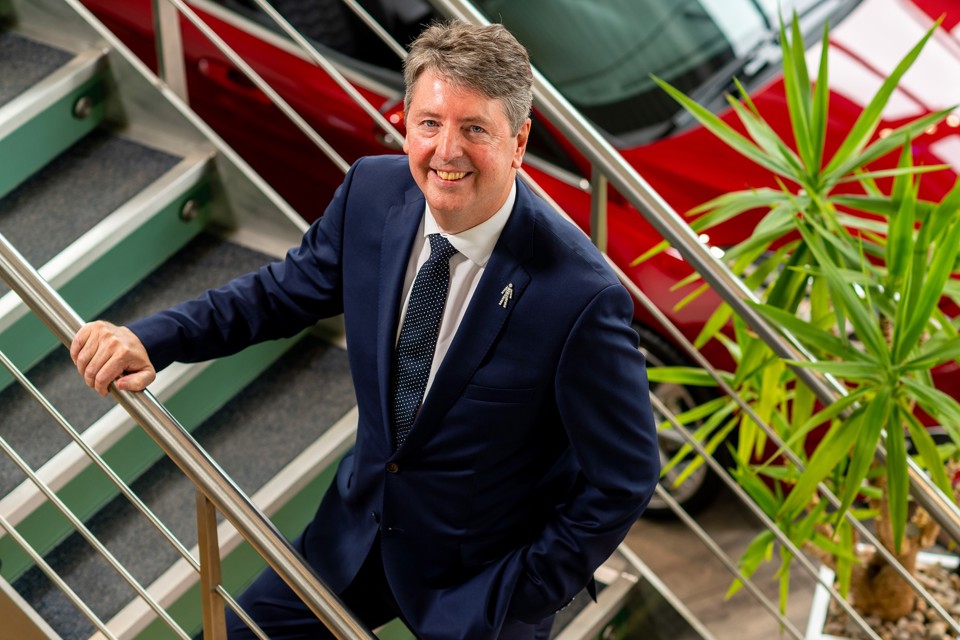


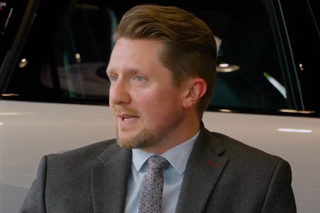
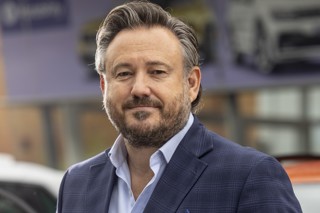
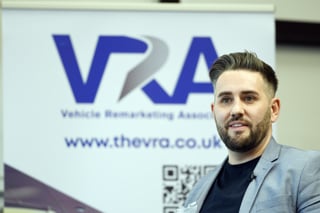
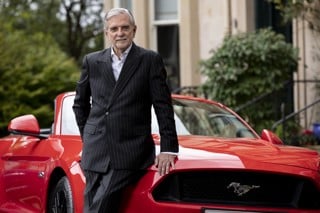
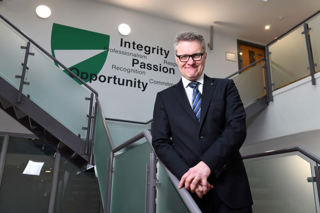












Login to comment
Comments
No comments have been made yet.